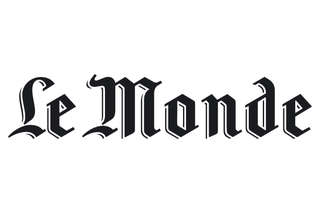 On 10 September 2015, the French daily "Le Monde" published an interview which journalist Jean-Pierre Stroobants, from the paper's European Bureau in Brussels, conducted with Jean Asselborn, the Minister of Foreign Affairs and Immigration. In this interview, the minister states his position on the refugee crisis and the challenges that it raises within the EU and its Member States. We are translating the article in its entirety with the kind permission of "Le Monde".
On 10 September 2015, the French daily "Le Monde" published an interview which journalist Jean-Pierre Stroobants, from the paper's European Bureau in Brussels, conducted with Jean Asselborn, the Minister of Foreign Affairs and Immigration. In this interview, the minister states his position on the refugee crisis and the challenges that it raises within the EU and its Member States. We are translating the article in its entirety with the kind permission of "Le Monde".
"The Luxembourg Minister of Foreign Affairs and Immigration and Social Democrat Jean Asselborn, will chair the "Justice and Home Affairs" Council (JHA) on 14 September 2015, which has been mandated to outline solutions to the vast refugee crisis that is facing the European Union. Until the end of the year his country presides over the six-monthly Presidency of the European Union's twenty-eight Member States.
What do you expect from this meeting following the European Commission's proposals which aim, in particular, to distribute around 120,000 refugees between the Member States?
The Luxembourg Presidency has called this Council with the intention to show that a common response to the enormous challenge of migration is possible. We will not solve everything in one day, but a fundamental question must be addressed: how is Europe going to deal with all these human beings?
We have seen the terrible images, the ones of that lorry transporting suffocated migrants in Austria and those of little Aylan on a Turkish beach. Furthermore, we have also seen a huge wave of generosity, in Germany, Austria and beyond. There is a deep divide between reactions of opinion and resistance from certain political chiefs. This swing can be important.
It should be understood that the crisis is perhaps going to last ten years, and that the solutions will therefore take a long time. The solidarity between us must not be jeopardised, otherwise we will be handing ammunition to the supporters of European disunity.
In fact, Europe has rarely been so divided: countries in the Centre and East of the Union have repeated their refusal for any binding measure to receive refugees…
I am not blind to that. I am not either ignoring the fact that far right wing tendencies are complicating the lives of certain coalitions. But Europe must show its greatness, humanity and solidarity and abandon this double-speak which it is sometimes accused of. Would some only want to accept healthy white Catholics on their soil? From now on they will have to argue this point of view before the general public, and this will not become obvious.
I would remind everyone that the EU demonstrated an unfailing and admirable solidarity by opening up to new arrivals after the fall of the (Berlin) Wall. Or when it took in the populations of the former Yugoslavia during the 1990s. We have also reliably assured the transfer of monies from the richer to the poorer, through the help of structural funds. And today we have shown solidarity by imposing sanctions on Russia and helping our friends in the East, for example by ensuring a deterrent military presence on their territory.
You mentioned that we should be "ashamed" of the policy pursued by the Hungarian Prime Minister, Viktor Orban: did you not?
Oh, I'm not setting myself up as a moral reference, but you don't play with fire by putting human values in jeopardy, particularly when we have been dealing with people who have suffered the worst kind of atrocities.
How would you judge the Commission's work?
I believe that its proposals are well thought out and can, broadly speaking, be followed. Some points, however, will be hotly debated, such as the idea of charging States which invoke an alleged lack of tradition for hospitality or an exceptional situation as the reason for refusing refugees. It will be recalled that the European Union's Charter of Fundamental Rights requires, under Article 18, States to accommodate persons protected under the Geneva Convention.
And, at the same time, a return policy must be developed, knowing full well that half of those arriving in Europe are Syrians, Afghans or Eritreans and that it will therefore be difficult to send them back to their countries…
It should be ensured too that "hot spots" [the control and registering centres in Greece, Italy and Hungary] work and process requests for asylum quickly and with dignity. Lastly, we should find new avenues for collaboration with countries of origin and transit countries.
Some, in the European Parliament in particular, are surprised that an extraordinary summit on migration has not been called yet...
The experience of the last European summit on this question should make them reflect. A second meeting of home affairs ministers will precede the summit in mid-October and may take important decisions. By qualified majority and not unanimously, as a summit should do…
The crisis developments have raised the possibility of the Western bombardment in Syria. What is your position?
On Tuesday I spoke to President Hollande, who referred to the need to get to the root of problems. Armed force will not solve everything, and the focus should be on prudence, but it should also turn the tide on the Islamic State and destroy the stashes of arms that enable it to carry out its atrocities."
Interview by Jean-Pierre Stroobants (Brussels, European Bureau)

